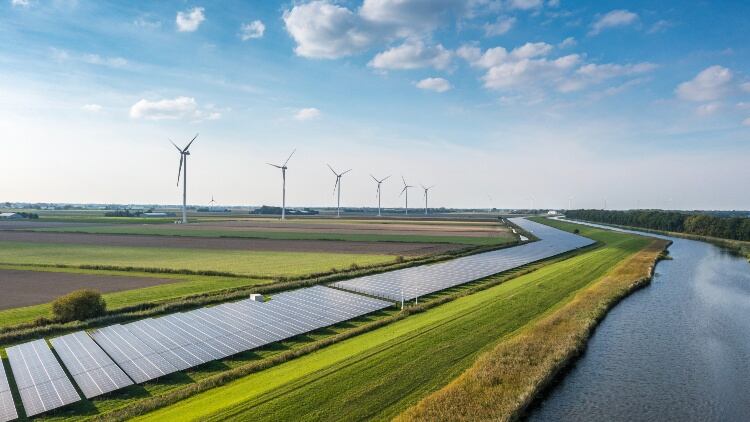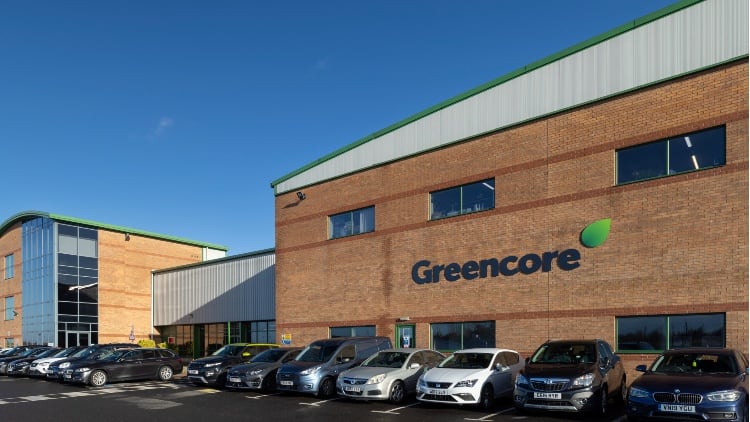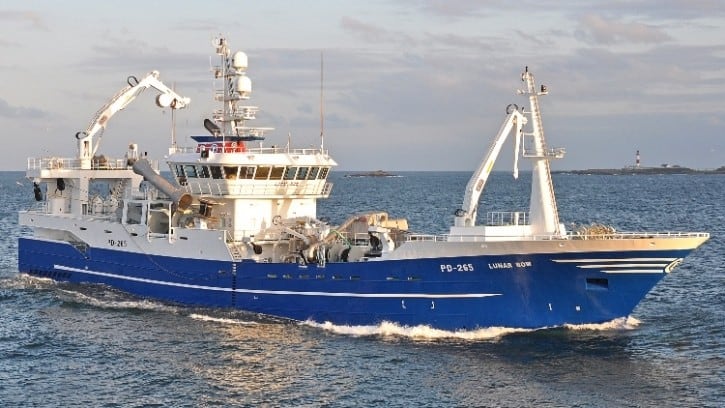The online session featured detailed analysis of the core challenges that face businesses from across the food and drink industry when it comes to sustainability, while also looking at the potential solutions on offer and case studies of firms that are blazing a trail in this area.
According to the Food and Drink Federation, the UK food and drink sector was responsible for approximately 17% of the country’s carbon footprint as of 2019, a fact that underlines the urgent need for F&B firms in the UK and beyond to make the switch to renewable energy sources. Whether it is through the use of solar and wind power, or some of the new technologies now coming to the fore, it is imperative that business leaders do not bury their heads in the sand and instead search for solutions.
The issue discussed does not simply pertain to the food and drink sector, but rather to all industries and society as a whole. With COP28 due to begin today (30 November 2023), sustainability and the fight against climate change is very much on the global agenda and it is the responsibility of all of us to play a part.
Providing their insights were speakers Simon Duncan, director of B2B solutions at E.ON, Tom Maidment, group product sustainability senior manager at Hilton Foods, Oz Russell, industrial policy officer at the Association for Decentralised Energy and Rich Clothier, managing director at Wyke Farms. All four offered a slightly different perspective on the matter at hand, leaning on their unique experiences in a bid to support and guide the food and drink sector as a whole.
Challenges and solutions
Kicking off the webinar – which you can watch for free by following this link – Duncan explored the core challenges that face food and drink manufacturers looking to alter their energy mix.
These included the potential disruptions that major works can have on production, with many sites operating around the clock. Time spent with machinery out of order can lead to costs adding up and shortfalls in output. Additionally, Duncan highlighted that many firms have concerns about investing in decarbonisation solutions at a time when input costs remain high.
“Finding innovation grants and government funding can be a route to reducing your costs and making projects more viable,” Duncan offered as a possible solution for funding shortfalls.
Next, he discussed E.ON’s three-step approach to net zero: visualise, optimise and decarbonise. While no journey to decarbonisation is linear, Duncan explained that this framework allows E.ON to adapt its offering to firms at different stages and then deliver the most suitable solution.
Providing specific examples, he detailed projects that E.ON has worked on with Diageo and PepsiCo, two leading food and drink manufacturers. The Diageo case study centred on the potential role of solar energy, while work conducted at PepsiCo’s Walkers factory showed how on-site wind turbines can support decarbonisation.
Data driven decarbonisation
Next up, Maidment presented on how the use of data can be support the decarbonisation process at a food manufacturing firm such as Hilton Foods, which operates more than 25 facilities across 15 geographical markets.
Maidment began by describing the process that Hilton Foods underwent, starting with understanding the initial baseline before moving onto creating a roadmap and then project delivery. This involved creating a robust measurement infrastructure and identifying the most pressing priorities, which then informed the firm’s future course of action.
Hilton Foods then created a set of targets which Maidment said allowed the firm to be held to account both “internally and externally” and acted as proof of the actions being taken. These targets were then broken down from the group level to the site level, so that employees at each facility understood what was specifically required of them.
To finish, Maidment gave some examples of the specific standards put in place and projects that had been completed, explaining in each case how they contributed to the firm’s decarbonisation goals.
“It is about embedding an efficiency culture across the business so that everyone, no matter their job, is on the same page,” he explained.
Changing the UK energy system
Continuing the discussion, Russell discussed analysis conducted by the Association for Decentralised Energy that was focused on the differences that exist between food and drink manufacturing sites located near industrial clusters and those in dispersed locations.
Russell laid out the reasons why businesses choose specific locations for their facilities, but highlighted how dispersed sites can come with disadvantages from a decarbonisation perspective.
“At most dispersed sites access to renewable technologies such as hydrogen and carbon capture stretches potentially into the 2030s,” he explained.
“Government policy does not tend to distinguish between dispersed and clustered sites.”
Another barrier facing food and drink businesses located in dispersed sites that Russell highlighted is the connection queue, which is leading to large delays for firms that are seeking to electrify their processes.
In response to the challenges presented, Russell said that food and drink manufacturers have looked to innovative solutions such as repurposing waste products and heat, a topic also touched on by Clothier in the final presentation. He concluded by describing the current picture as “gloomy” for food and drink manufacturers in dispersed sites, and called on the introduction of more specific policy tools that support firms in all locational settings.
Wyke Farms
Finally, Clothier spoke about his personal experience of decarbonisation at Wyke Farms, a family-owned dairy farm in Somerset that produces 20,000 tonnes of cheese and butter per year.
The farm currently employs several renewable technologies including solar panels and anaerobic digestion, with Clothier explaining that the farm setting possesses plenty of natural assets that support decarbonisation and the business’ 100% green strategy.
“Our goal is to create a sustainable working farm, one in which we source all of our electricity and gas from both solar and biogas, generated from our farm and dairy waste which is currently of no value,” he said.
Discussing the implementation of the 100% green strategy, Clothier outlined how a reduced carbon footprint is just one way that this approach has proved beneficial for the wider business. He highlighted cost savings and improved waste management as tangible gains that the farm’s strategy has helped bring about.
To finish, Clothier reaffirmed his belief that decarbonising the food and drink manufacturing sector is “the right thing to do” and urged fellow businesses to explore the creative ways in which they can make their operations more sustainable and future proofed.
The webinar is available to watch on demand at the Food Manufacture website for the next three month, so follow this link to watch for free now.





